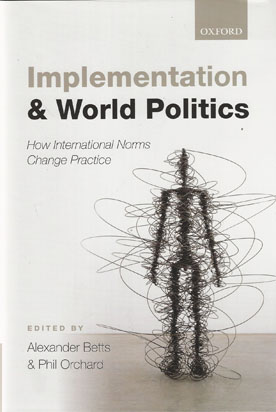
A significant amount of International Relations scholarship examines the role of international norms in world politics. Existing work, though, focuses mainly on how these norms emerge and the process by which governments sign and ratify them. In conventional accounts, the story ends there.
Yet, this tells us very little about the conditions under which these norms actually make any difference in practice. When do these norms actually change what happens on the ground? In order to address this analytical gap, the book develops an original conceptual framework for understanding the role of implementation in world politics. It applies this framework to explain variation in the impact of a range of people-centred norms relating to humanitarianism, human rights, and development.
The book explores how the same international norms can have radically different effects in different national and local contexts, or within particular organizations, and in turn how this variation can have profound effects on people's lives. How do international norms change and adapt at implementation? Which actors and structures matter for shaping whether implementation actually takes place, and on whose terms? And what lessons can we derive from this for both International Relations theory and for international public policy-makers?
Collectively, the chapters explore these themes by looking at three different types of norms - treaty norms, principle norms, and policy norms - across policy fields that include refugees, internal displacement, crimes against humanity, the use of mercenaries, humanitarian assistance, aid transparency, civilian protection, and the responsibility to protect.